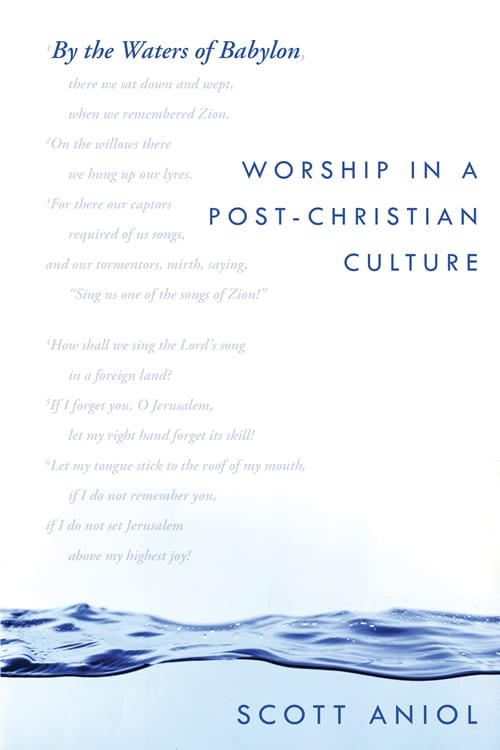It seems most Christians today assume that Christians have always “contextualized” the gospel, but this is simply not the case.
Like the idea of culture itself, the term “contextualization” is a relatively recent development. David Hesselgrave and Edward Rommen provide a helpful survey of contextualization’s history in Contextualization: Meanings, Methods, and Models.1David J. Hesselgrave and Edward Rommen, Contextualization: Meanings, Methods, and Models (Pasadena, CA: William Carey Library, 2003), 28–35.
The idea of contextualization is rooted in the missions debates of the Division on World Missions and Evangelism (DWME) of the World Council of Churches (WCC). Influenced by a secularist, anthropological understanding of culture and thus concerned that each civilization develop its own theology and method of church ministry in its own cultural context, the DWME began to condemn the “theological imperialism” of the church in the West. Its 1972–73 Bangkok Conference argued that non-Western churches should develop their own ideas “in a theology, a liturgy, a praxis, a form of community, rooted in their own culture.”2“Your Kingdom Come” (a pamphlet published by the World Conference on Mission and Evangelism, n.d.), 5. This desire for each church to be indigenized within its culture, clearly influenced by a belief in cultural neutrality, became known as “contextualization.” Hesselgrave and Rommen explain how this new concept differed from previous ways of thinking:
Contextualization is a new word—a technical neologism. It may also signal a new (or renewed) sensitivity to the need for adaptation to cultural context. To its originators it involved a new point of departure and a new approach to theologizing and to theological education: namely, praxis or involvement in the struggle for justice within the existential situation in which men and women find themselves today. As such it goes well beyond the concept of indigenization which Henry Venn, Rufus Anderson, and their successors defined in terms of an autonomous (self-supporting, self-governing, and self-propagating) church.3Hesselgrave and Rommen, Contextualization, 32.
Did you catch the reality about this idea of “contextualization”? It was a “new approach to theologizing.” Christians had always translated the Bible into the language of the people and indigenized Christian practice, but contextualization was a new concept that went beyond translations and indigenization to actually adapt theology, and it is particularly tied to concerns for “the struggle for justice.”
Christians had always translated the Bible into the language of the people and indigenized Christian practice, but contextualization was a new concept that went beyond translations and indigenization to actually adapt theology.
Like many of the missiological ideas that sprang from the WCC discussions of the 1970s, the idea of contextualization originally implied a relativism in every aspect of the church, including potentially theology and even morality.
Conservative evangelicals eventually adopted the term but attempted to reshape it to mean communication of an unchanging biblical message in changing cultural expressions. Hesselgrave and Rommen explain:
Most conservative evangelicals were already enamored with the word contextualization. They chose to adopt and redefine it where they rejected the meaning prescribed by the TEF [Theological Education Fund] initiators. They agreed that the new definition should reveal a sensitivity to context and a fidelity to Scripture.4Hesselgrave and Rommen, Contextualization, 33. Emphasis original.
They go on to explain how these conservative evangelicals disagreed on particular nuances of their new definition and note that “there is not yet a commonly accepted definition of the word contextualization.”5Hesselgrave and Rommen, Contextualization, 35. Emphasis original.
The problem is that when you buy into the underlying rationale behind the concept of contextualization, culture becomes the dominant starting point for theology and practice rather than Scripture. Furthermore, even though conservative evangelicals originally tried to separate theological contextualization from cultural contextualization, inevitably they cannot be separated.
And what has ended up happening with conservative evangelicals is exactly what the originators of the concept of contextualization intended—they have begun to adapt theology to the dominant ideologies of the day, as clearly evidenced in recent woke advocacy.
What has happened with conservative evangelicals is exactly what the originators of contextualization intended—they have begun to adapt theology to the dominant ideologies of the day.
Scripture and theology must absolutely be translated into the common language of the people, but Scripture must be the starting point, not culture. As we translate the words and concepts of Scripture, we must make sure that the target words and expressions faithfully capture the original meaning and sense of Scripture, rejecting the notion of cultural neutrality, and seeking always to reshape our lives and language according to Scripture, not the other way around.

For more on this, along with a biblical solution, see my book By the Waters of Babylon: Worship in a Post-Christian Culture (Kregel, 2015).
References
| 1 | David J. Hesselgrave and Edward Rommen, Contextualization: Meanings, Methods, and Models (Pasadena, CA: William Carey Library, 2003), 28–35. |
|---|---|
| 2 | “Your Kingdom Come” (a pamphlet published by the World Conference on Mission and Evangelism, n.d.), 5. |
| 3 | Hesselgrave and Rommen, Contextualization, 32. |
| 4 | Hesselgrave and Rommen, Contextualization, 33. Emphasis original. |
| 5 | Hesselgrave and Rommen, Contextualization, 35. Emphasis original. |




